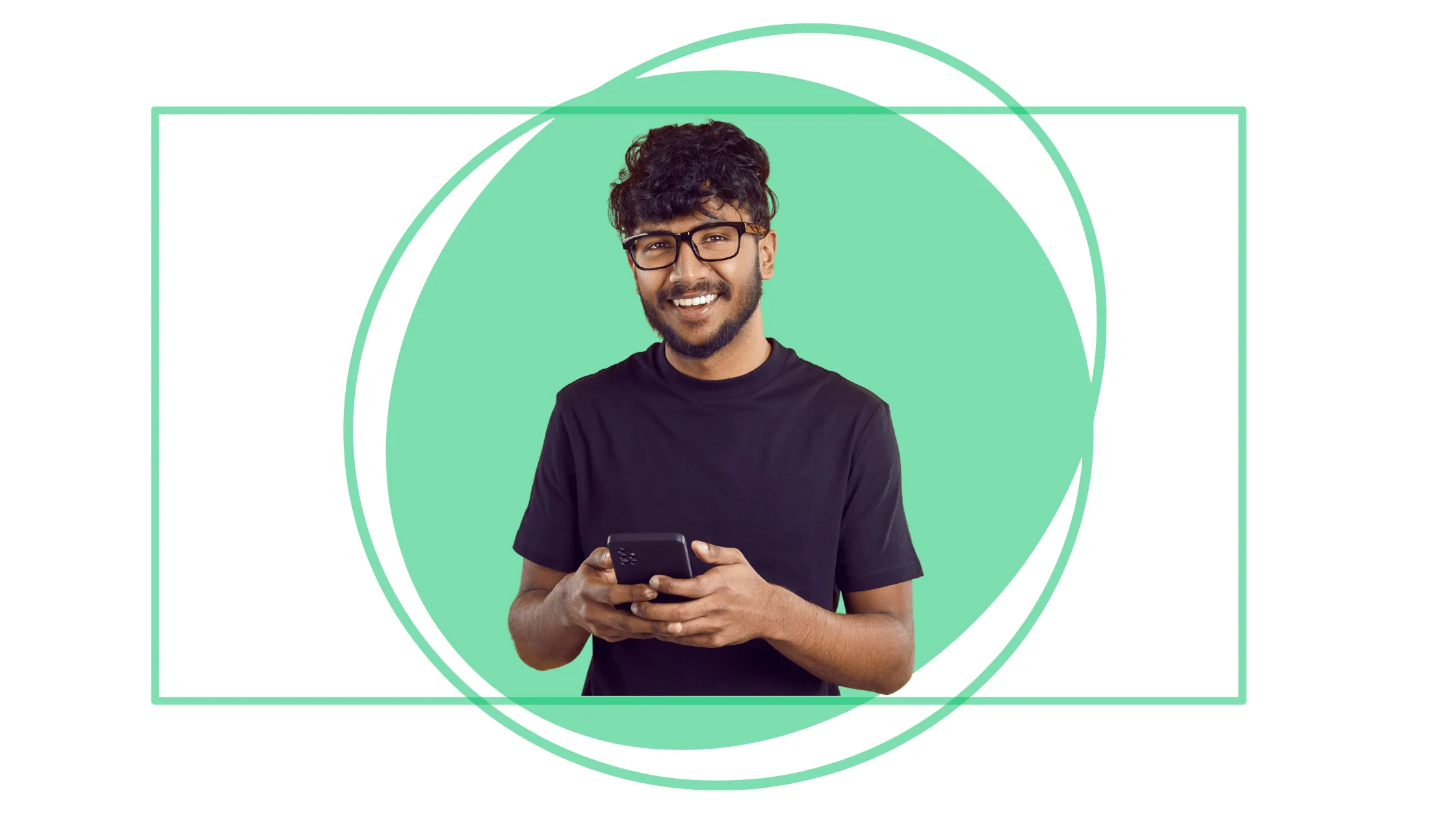WhatsApp for Healthcare – Improve Patient-Doctor Communication
Key Takeaways:
- Improved Accessibility: WhatsApp makes patient-doctor communication easier, ensuring patients get answers without navigating complex portals.
- Real-Time Engagement: Immediate replies help improve response times, leading to better patient outcomes.
- Automation and Convenience: CRM integration allows for automated replies, appointment scheduling, and record-keeping, streamlining administrative processes.
- Higher Personalization Capabilities: WhatsApp CRM integration provides a more personal and continuous touch in patient care, increasing trust and satisfaction.
- Increased Efficiency: Automation reduces the administrative burden, freeing up time for healthcare providers to focus on patient care and improving overall efficiency.
WhatsApp for Healthcare: The Problem
Traditional healthcare practices often struggle to meet the demands of patients who want quality care without dealing with the barriers of in-person interactions. Scheduling appointments through phone calls or online tools can prevent patients from asking follow-up questions in real time, leaving them frustrated and disconnected. Long waiting times for calls to be answered, difficulties in sharing important health information, and overall inconvenience create a gap between healthcare providers and patients.
This gap is especially problematic for patients who have chronic illnesses or mobility issues, as they may face significant challenges in getting the care they need without leaving their homes. Additionally, the traditional process often fails to provide personalized communication, making patients feel like just another number rather than an individual with unique health needs. The lack of immediacy and accessibility inherent in these outdated systems leads to increased patient dissatisfaction and worsens health outcomes, particularly for those who require ongoing, consistent care.
Further complicating matters is the issue of communication breakdowns between departments, as patients are often bounced around between different support teams without receiving clear answers. This disjointed process results in miscommunication, delayed treatments, and unnecessary stress for patients who are already anxious about their health. Furthermore, the use of phone-based systems does not accommodate the visually or hearing impaired effectively, adding yet another layer of barriers to equitable healthcare access.
WhatsApp for Healthcare: The Solution
WhatsApp simplifies these interactions, making it easier for both patients and healthcare providers. With features like WhatsApp Business API, hospitals and clinics can provide seamless communication, enhance patient satisfaction, and improve workflow efficiency. WhatsApp’s integration helps address the need for effective, real-time communication between healthcare providers and patients, ensuring that timely support is just a message away. With WhatsApp, clinics can stay connected with their patients at scale.
Moreover, using WhatsApp for healthcare introduces a level of familiarity and comfort that traditional systems lack. Patients are already accustomed to using WhatsApp to communicate with friends and family, which lowers the learning curve and makes engagement simpler and more natural. It empowers healthcare providers to offer real-time assistance without the overhead of traditional systems, thereby breaking down the barriers that have previously prevented efficient patient communication.
With the integration of chatbots, clinics can provide round-the-clock support, guiding patients on steps to take, suggesting health check-ups, and answering routine queries. This immediate interaction ensures that patients get the help they need right away, which is especially crucial in time-sensitive situations. Furthermore, WhatsApp’s multimedia features, like voice notes and image sharing, enable more detailed communication—patients can send photos of their symptoms or receive audio instructions from their doctors, improving diagnostic accuracy.
Why Use WhatsApp for Healthcare?
WhatsApp for Healthcare revolutionizes patient-doctor communication. Here’s why it’s essential:
- Patients Prefer It: Most patients are already familiar with WhatsApp, and it’s straightforward to use. No complicated health portals or login credentials are needed.
- Real-Time Responses: Healthcare providers can respond immediately, share results, and provide follow-ups, all of which reduce patient anxiety and enhance satisfaction.
- Multi-Format Communication: Doctors can send texts, images, or voice notes, making it easier to explain medical information clearly.
- Cost Efficiency: Reduced paperwork and fewer missed appointments save money and improve operational efficiency.
- Trust and Personalization: Direct communication fosters trust, which can boost adherence to treatment plans.
WhatsApp provides an environment where patients can communicate comfortably, ask questions when necessary, and receive support without any hindrances. This approach transforms healthcare from an intimidating experience into one that feels accessible and caring.
Benefits of WhatsApp CRM Integration for Healthcare Providers
1. Appointment Management
Forget endless phone calls. Patients can easily book, reschedule, or cancel their appointments directly through WhatsApp. Integrating WhatsApp with a CRM system like Sanoflow automates reminders, confirmations, and reduces no-shows—helping clinics run more smoothly.
For instance, Sanoflow integrates with Google Calendar to keep everything organized without manual intervention. This kind of automation allows administrative staff to focus on tasks that matter, reducing errors and saving valuable time.
Not only does it improve appointment handling, but it also reduces the administrative burden on healthcare providers. Automation takes over, ensuring fewer mistakes and delivering timely reminders to patients, ultimately leading to more consistent attendance and better management of patient flow.
2. Secure Patient Communication
Patient data privacy is crucial. WhatsApp offers end-to-end encryption, meaning messages are secure and private. When integrated with a healthcare CRM like Sanoflow, data is securely logged and can be referred back to when needed. Integrating WhatsApp with Electronic Health Records (EHR) systems ensures that all patient information is consistent and up to date, enhancing quality of care.
Secure communication not only protects sensitive patient information but also fosters confidence. Patients feel safer knowing their data is in good hands. By utilizing WhatsApp’s encryption features combined with CRM integration, healthcare facilities can provide an excellent patient experience that prioritizes security.
3. Proactive Patient Engagement
Using WhatsApp CRM integration, clinics can send reminders for medication, follow-up appointments, and even general health tips. This kind of engagement ensures patients adhere to their treatment plans and stay healthy, improving long-term outcomes.
Imagine being reminded to take your medication or attend a follow-up via WhatsApp. For patients managing chronic conditions, these timely reminders can be life-changing. Consistent, proactive engagement fosters accountability and ensures better health management.
Additionally, clinics can share health-related announcements, seasonal health tips, and personalized suggestions to patients. For instance, during flu season, they can notify patients of vaccine availability, thereby ensuring more patients receive timely care.
4. Automated Responses for Routine Queries
Patients often need answers to simple questions like “What are your hours?” or “Do you accept my insurance?”. With automated responses, these routine queries can be handled instantly. This saves time for both patients and staff, improving overall efficiency. Chatbots can gather initial patient information before handing it off to a human specialist, freeing staff to focus on more complex issues.
Automating these routine tasks also enables staff to allocate more time to patient care. By reducing the need to answer repetitive questions, healthcare providers can focus their attention on cases that require human insight, improving both patient outcomes and operational efficiency.
WhatsApp Chatbot for Healthcare
A well-configured WhatsApp chatbot can greatly enhance healthcare service delivery. WhatsApp chatbots can help patients find information, make appointments, and get reminders for their upcoming consultations. Automating these conversations allows clinics to scale, providing prompt service to more patients simultaneously without increasing administrative staff workload.
Real-World Example: Dr. Patel’s Clinic
Dr. Patel implemented WhatsApp integrated with Sanoflow to manage her clinic. Here’s how it transformed their process:
- Faster Follow-Ups: Automated WhatsApp reminders helped reduce no-show appointments by 30%.
- Better Relationships: Patients felt more connected by receiving prompt answers to their queries, which improved satisfaction and loyalty.
- Convenient Scheduling: Patients could book appointments at any time, without needing to call during office hours, giving them more control over their health.
Dr. Patel also noticed a significant reduction in administrative workload, as the chatbot handled numerous common inquiries. This change allowed her team to be more efficient and dedicate their time to providing better patient care. The enhanced connectivity also meant patients were more engaged and proactive about their health, leading to better health outcomes.
Gathering Data for Faster Medical Evaluation
Patients can use WhatsApp to share information before their appointment, such as symptoms or health history. This saves time at check-in and helps doctors prepare for consultations, improving efficiency and allowing more personalized care. When patients arrive, they can start their examinations right away, reducing waiting times significantly.
This data-sharing capability also enables healthcare providers to identify any immediate red flags that require urgent attention. By having the necessary patient information ahead of time, healthcare professionals can prioritize more effectively, enhancing the quality and responsiveness of care.
Record Keeping and Data Access
Gaining access to patient medical records quickly is critical for doctors. By integrating WhatsApp Business API with a CRM like Sanoflow, healthcare providers can store patient records safely and access them instantly. This not only helps deliver prompt care but also improves the accuracy and personalization of healthcare services.
In addition, easy record keeping and data access help healthcare providers maintain continuity of care, ensuring that no critical patient information is lost. By using WhatsApp integrated systems, clinics can improve documentation quality, minimizing errors and facilitating better patient tracking.
Sharing Health Tips and Promoting Wellness
A WhatsApp chatbot can also share daily health tips to encourage healthier lifestyles. Simple reminders like maintaining good sleep habits, eating a balanced diet, or staying active can make a big difference in patient well-being. Sharing personalized health tips helps patients feel cared for, even outside the clinic.
Engaging patients with regular health tips can also prevent minor issues from becoming serious problems. By promoting preventive care and encouraging healthy habits, clinics can contribute to improving community health overall. Such engagement helps patients stay informed, empowered, and proactive in managing their health.
Payments and Health Insurance Guidance
Healthcare payments and insurance claims can be complicated. WhatsApp makes it easier by allowing patients to pay directly through the app. Patients can also upload documents, such as insurance papers, directly via chat. This feature simplifies the payment process and reduces stress, ensuring patients can focus on their health instead of paperwork.
The ability to manage payments and insurance through WhatsApp provides a more streamlined experience. By reducing the complexity associated with healthcare payments, clinics improve patient satisfaction, and patients appreciate the convenience of handling everything from one platform.
Mental Health Counseling and Support
WhatsApp for Healthcare can also be a valuable tool for mental health support. Patients can connect with mental health professionals in real time, receiving immediate support and guidance. WhatsApp’s ease of use helps patients who might feel anxious about in-person counseling to communicate more freely, ensuring they receive the care they need.
Mental health support via WhatsApp also benefits patients who live in remote areas or cannot visit a clinic in person. WhatsApp provides an accessible platform for these patients, enabling them to seek help when they need it most. By removing barriers to access, WhatsApp helps ensure that mental health services are available to everyone, regardless of their location.
Challenges of Record-Keeping and Data Storage
With increased WhatsApp use in healthcare, maintaining proper records is crucial. Many clinics fail to transfer information from WhatsApp to official medical records, which raises legal and ethical issues. It’s important to implement proactive measures to ensure all patient data is properly logged, stored, and integrated with medical records. Effective record-keeping practices protect both the patient and the healthcare provider.
Proper data storage is not just about compliance—it’s also about providing better care. When healthcare professionals have accurate, complete patient information at their fingertips, they can make better decisions, avoid treatment errors, and ensure a seamless experience for patients.
How to Get Started with WhatsApp for Your Clinic
If you’re ready to transform patient-doctor communication, integrating WhatsApp with a CRM like Sanoflow is a game changer. It will streamline operations, improve efficiency, and ultimately enhance patient satisfaction.
To learn more about starting with Sanoflow’s WhatsApp integration, check out how it can help your clinic today.
Common Questions Patients Ask (and How WhatsApp Helps)
Is WhatsApp API free?
No, the WhatsApp Business API is not free. It has usage-based pricing depending on factors like the number of messages sent and received. For more details, visit WhatsApp API Pricing. Integrating with a provider like Sanoflow may also involve additional costs.
What is the difference between WhatsApp and WhatsApp with API?
The regular WhatsApp app is a personal messaging tool, while the WhatsApp Business API allows businesses, including healthcare providers, to automate interactions, integrate with CRMs, and handle large-scale communication needs efficiently. For more details, visit WhatsApp Business App vs WhatsApp Business Platform.
Is WhatsApp API safe?
Yes, WhatsApp API is safe. It offers end-to-end encryption for secure communication, and when integrated with CRM systems, it also ensures that all data is managed according to healthcare industry standards.
What is the best WhatsApp API provider?
The best WhatsApp API provider can vary based on needs, but Sanoflow is highly recommended for healthcare providers due to its seamless integration, advanced CRM features, and commitment to secure communication.
How to get WhatsApp API?
To get the WhatsApp Business API, you need to work with an authorized WhatsApp Business Solution Provider like Sanoflow. They can help you integrate the API with your systems, set up messaging flows, and ensure compliance with data security regulations.
Wrapping It Up
WhatsApp for Healthcare offers an easy, effective, and personal way to connect healthcare providers with patients. Paired with tools like Sanoflow, WhatsApp brings healthcare into the digital age—making it accessible and efficient for everyone.
Imagine offering your patients a way to get answers quickly, feel connected, and have more control over their healthcare. This is what WhatsApp and Sanoflow can deliver—transforming communication and making healthcare more patient-centric.
Ready to enhance your healthcare communication? Learn more about Sanoflow’s WhatsApp integration and start transforming your practice today.
Why Patients Love WhatsApp for Healthcare
Patients are used to using WhatsApp in their everyday lives. It’s personal, it’s immediate, and it’s easy. No logging in, no waiting on hold. Plus, they can receive health tips, schedule appointments, or even make payments—all in one place. It turns healthcare into a part of their normal routine, instead of a hassle.
Patients also love the ability to receive personalized health tips from their doctors. For example, a simple “Here are some exercises that could help with your back pain” goes a long way. It shows patients that their doctor thinks about them beyond just office visits, and it helps build trust.
According to a recent study, 67% of patients prefer online appointments instead of calling the clinic. WhatsApp makes that possible, without friction. Patients can book appointments in seconds, making them more likely to follow through on their healthcare.
How to Get Started with WhatsApp for Your Clinic
If you’re ready to transform patient-doctor communication, integrating WhatsApp with a CRM like Sanoflow is a smart move. Not only will it streamline operations, but it will also enhance the overall patient experience. As a result, administrative burden is reduced, efficiency is increased, and higher patient satisfaction is ultimately achieved.
Learn more about starting with Sanoflow’s WhatsApp integration and see how easy it can be to improve patient satisfaction and clinic efficiency.






